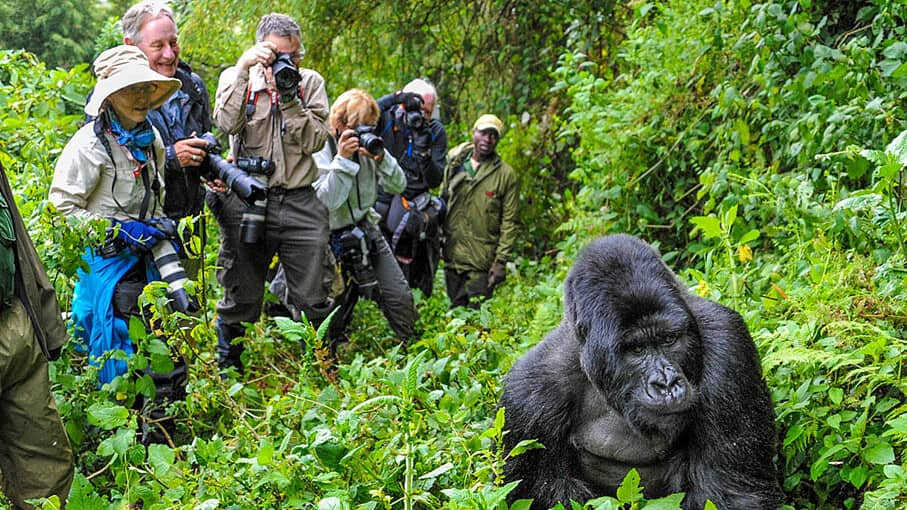
Go for gorilla trekking adventure in Volcanoes National Park, Rwanda
What's the story
Volcanoes National Park in Rwanda offers a unique opportunity to encounter mountain gorillas in their natural habitat. This park, part of the larger Virunga Conservation Area, is home to several habituated gorilla families. Visitors can embark on guided treks through the park's lush rainforests to observe these magnificent creatures up close, providing an unforgettable wildlife experience.
Preparation
Preparing for your trek
Before embarking on a gorilla trekking adventure, it's essential to prepare adequately. This includes obtaining a permit well in advance, as they are limited and highly sought after. Trekkers should also ensure they have appropriate clothing and gear for hiking through dense vegetation and variable weather conditions. Physical preparation is advisable since treks can be demanding, involving several hours of hiking at high altitudes.
The trek
The trekking experience
The trek starts early at the park headquarters, where visitors receive a briefing and join a designated gorilla family group. Guided by experts, the trek through the forest to find the gorillas can take from one to six hours. Upon locating them, trekkers spend an hour observing these magnificent creatures from a safe and respectful distance.
Other attractions
Beyond gorillas: Park attractions
While gorilla trekking is the highlight for most visitors to Volcanoes National Park, there's more to explore. The park offers hikes to Dian Fossey's tomb and research center at Karisoke, where she studied mountain gorillas for 18 years. Additionally, there are opportunities for bird watching with over 200 species recorded in the area and visits to Musanze Caves formed by centuries of geological activity.
Sustainability
Responsible tourism practices
Practicing responsible tourism is essential during visits to Volcanoes National Park for gorilla trekking. Adhere to guidelines like minimizing noise and avoiding littering. Keeping a safe distance from gorillas is crucial to prevent stress and disease transmission. Following these practices ensures a respectful experience toward wildlife and local communities, making your adventure both enriching and sustainable.